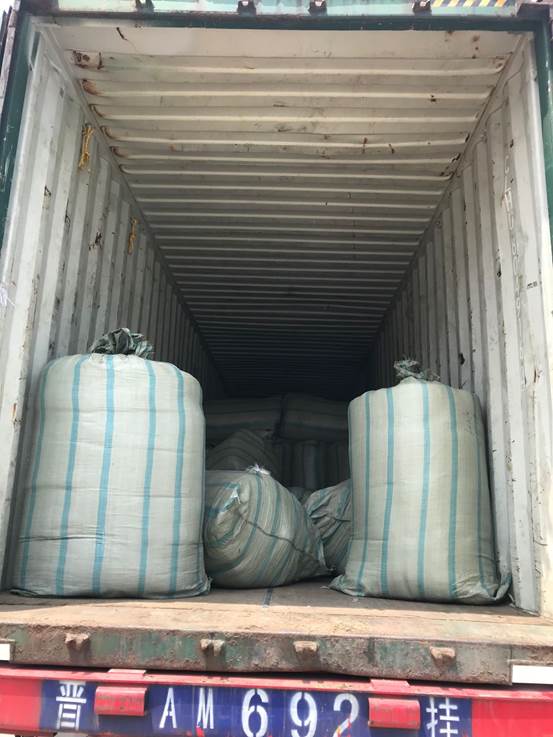Nov . 07, 2024 17:23 Back to list
Top Synthetic Filter Media for Enhanced Filtration Efficiency and Performance
The Best Synthetic Filter Media Enhancing Filtration Efficiency
In today's world, where environmental concerns and pollution levels are rising, the demand for effective filtration systems has never been greater. From industrial applications to residential water purification, filter media plays a crucial role in ensuring clean, safe, and potable water. Among various types of filter media available, synthetic filter media have emerged as a preferred choice due to their superior performance and versatility. This article explores the best synthetic filter media, highlighting their advantages, applications, and key considerations when selecting the right type.
Understanding Synthetic Filter Media
Synthetic filter media refers to filtering materials made from synthetic fibers or polymers, designed to capture particles, bacteria, and other contaminants in fluids. Unlike traditional filter media made from natural materials, synthetic media often offer enhanced durability, efficiency, and adaptability. Key materials used in synthetic filter media include polypropylene, polyester, and nylon, which are engineered to cater to specific filtration needs.
Advantages of Synthetic Filter Media
1. High Filtration Efficiency One of the primary benefits of synthetic filter media is their ability to provide high filtration efficiency. These materials can capture a wide range of particle sizes, from large sediments to microscopic contaminants. Advanced manufacturing techniques, such as melt-blown and spun-bond processes, create layered structures that increase surface area and improve filtration performance.
2. Longevity and Durability Synthetic materials are often more resistant to degradation caused by moisture, chemicals, and temperature variations compared to natural fibers. This durability translates into a longer lifespan for the filter media, reducing replacement frequency and the overall cost of filtration systems.
3. Customizability Synthetic filter media can be engineered to create various characteristics tailored to specific applications. Whether it’s a higher flow rate, enhanced dirt-holding capacity, or improved resistance to chemicals, manufacturers can modify the properties of synthetic media to meet diverse filtration requirements.
4. Lightweight and Low Maintenance Synthetic media is typically lighter than traditional materials, making installation and handling easier. Additionally, many synthetic filters are washable and reusable, which reduces waste and maintenance costs.
Applications of Synthetic Filter Media
Synthetic filter media finds application in numerous industries and environments
best synthetic filter media

- Water Treatment In municipal and industrial water treatment facilities, synthetic filter media effectively capture sediments, bacteria, and pollutants to produce safe drinking water. - HVAC Systems These filters are widely used in heating, ventilation, and air conditioning (HVAC) systems to improve indoor air quality by trapping dust, allergens, and other airborne particles.
- Industrial Processes Many manufacturing processes rely on synthetic filter media for efficient liquid and gas filtration, protecting equipment and products from contaminants
.- Automotive and Aerospace Synthetic filter media are essential in automotive engines and aerospace applications, where high-performance filtration is necessary for engine efficiency and safety.
Choosing the Right Synthetic Filter Media
When selecting synthetic filter media, several factors should be considered
1. Filtration Requirements Assess the specific contaminants that need to be removed. Different applications may require varying levels of filtration efficiency.
2. Flow Rate and Pressure Ensure that the selected media can handle the required flow rates without causing excessive pressure drops, which can affect system performance.
3. Chemical Compatibility Consider the chemistry of the fluids being filtered. It's crucial to choose media that are resistant to the specific chemicals they will encounter.
4. Cost and Availability Evaluate the overall cost of the filtration system, including purchase, maintenance, and replacement costs. Consider the availability of the chosen media to ensure a consistent supply.
Conclusion
Synthetic filter media represent a significant advancement in filtration technology, providing superior performance, versatility, and durability. As the need for effective filtration continues to grow, understanding the best types of synthetic filter media and their applications will enable industries and consumers alike to make informed decisions. By choosing the right synthetic filter media, we can enhance our ability to produce clean, safe water and maintain a healthier environment.
-
Premium Active Carbon Air Filter for Air Purifier | Odor & VOC Removal
NewsAug.23,2025
-
Active Carbon Air Filter for Air Purifier - Superior Odor Removal
NewsAug.22,2025
-
Premium Active Carbon Air Filter for Air Purifiers - Odor Removal
NewsAug.21,2025
-
Premium Acrylic-Resin Air Filter Paper in Roll | High Efficiency
NewsAug.19,2025
-
PLAB-6 A B Two Compounds Filter End Cap Gluing Machine-Hebei Filter Man|Precision Gluing,Automated Production
NewsAug.18,2025
-
PLAB-6 A B Two Compounds Filter End Cap Gluing Machine - Hebei Filter Man Automotive Parts Trading Co., Ltd | Adjustable Gluing Parameters, Automated Precision
NewsAug.18,2025
